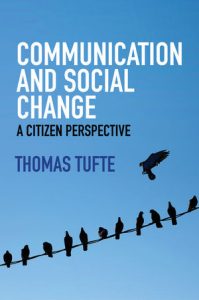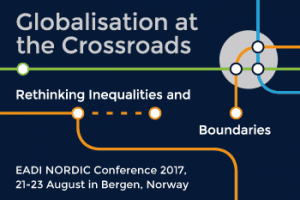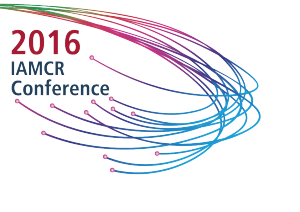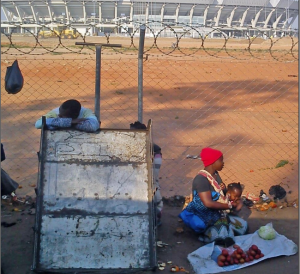Special Issue of the Journal of Communication: Call for Submissions

The special issue titled “Communication for Development and Social Change: Experiences & Future Convergences”, published in 2017, will provide in-depth understanding of the role of communication in social movements and various forms of collective action. Have your study included in the special issue.
Communication for development and social change is at the crossroads of multiple approaches in communication scholarship, including visual communication, organizational communication, media and communication technologies, intercultural communication, and other communication practices. It also constitutes an established practice carried out and supported by agencies in international development and cooperation. In recent years, we have seen a proliferation of experiences and approaches, led by global partnerships and alliances as well as civil society organizations which, in many cases, crystallized in social movements across the globe.
In the aftermath of the financial crisis in 2008 and the so-called ‘Arab Spring’, social movements came to represent a rich and heterogeneous amount of bottom-up citizen and community-driven initiatives. They are cause-driven mobilizations pursuing goals across various issues and sectors, including public health, education urban development, sustainable development, and children’s and women’s rights. Recent humanitarian crises, such as the Ebola crisis and the refugee crises, have led to a widespread citizen engagement through a variety of social change communication and community-led initiatives.
In this processes, digital media and digital-centered forms of mobilization have been crucial, but also contested. The debate has moved beyond the initial techno-determinist fascination with so-called “Facebook” and “Twitter” mobilizations to the recognition of complex and dynamic relations between online and offline communication, organizations and social change, movements and media, performance and protest, communication and public deliberation, as well as among a variety of actors including communities, non-governmental and governmental organizations, movements, and companies pursuing similar agendas.
The energy, creativity, discourses, tactics, and strategies through which various political and social actors communicate for social change have come to challenge and inspire both research and practice. Many governmental and non-governmental organizations are seeking ways and means to reach and connect with constituencies, spark new energy, drive stronger public and policy agendas, build social movements, and promote social change.
Against this backdrop, the focus of this special issue of the Journal of Communication is to offer an in-depth understanding of the role of communication in social movements and various forms of collective action that promote equity, social justice, and human rights by tackling a range of global social problems.
Which submissions are we looking for?
We invite authors to send submissions informed by various theoretical perspectives and methodological approaches in communication studies. We are interested in submissions that:
- Revisit communication and social change theories, models, and arguments that inform research about communication in times of digital media and widespread citizen engagement.
- Examine case studies that bring original theoretical, analytical and conceptual insights about new dynamics of citizen engagement, organizational communication, and other communication practices related to multiple dimensions of social change.
- Critically reflect upon opportunities and limitations that social movements, organizations, non-government organizations, community-based organizations, and other civil society actors confront to spark communication, citizen engagement, and promote social change.
- Address communication experiences in a wide range of policy and development sectors and issues, including health, environment, poverty alleviation, energy, labor, culture, religion, diversity, gender equality, social accountability, and social inclusion.
Terms & Conditions
Manuscripts should not exceed 28 pages (6000 words), including references and figures, and must be submitted through the online submission system of the Journal of Communication. Authors should indicate that they wish to have their manuscript considered for the special issue. Information about author guidelines can be found in the Journal of Communication website.
Deadline for submissions: December 1, 2016.
Inquiries should be sent to Dr. Thomas Tufte (ttufte@ruc.dk) and Dr. Rafael Obregon (robregon@unicef.org), the guest editors of the special issue.
Image via
 New PhD opportunities at the University of Leicester
New PhD opportunities at the University of Leicester Call for Abstracts: New Directions in Media, Communication and Sociology (NDiMS) Conference
Call for Abstracts: New Directions in Media, Communication and Sociology (NDiMS) Conference Ørecomm Team to Gather at the University of Coimbra
Ørecomm Team to Gather at the University of Coimbra “Communication and Social Change – A Citizen Perspective” Published
“Communication and Social Change – A Citizen Perspective” Published C4D Network to Sum Up Global Communication for Development Practice
C4D Network to Sum Up Global Communication for Development Practice Entering Media and Communication into Development Conferences?
Entering Media and Communication into Development Conferences? IAMCR Conference 2016: Communication for Development Highlights
IAMCR Conference 2016: Communication for Development Highlights Glocal Classroom Revisited – Storytelling & Social Change Leicester-Malmö
Glocal Classroom Revisited – Storytelling & Social Change Leicester-Malmö I EvalComDev International Conference: Call for Papers
I EvalComDev International Conference: Call for Papers Looking for Media and Communication in Development Conferences: Devres 2016
Looking for Media and Communication in Development Conferences: Devres 2016